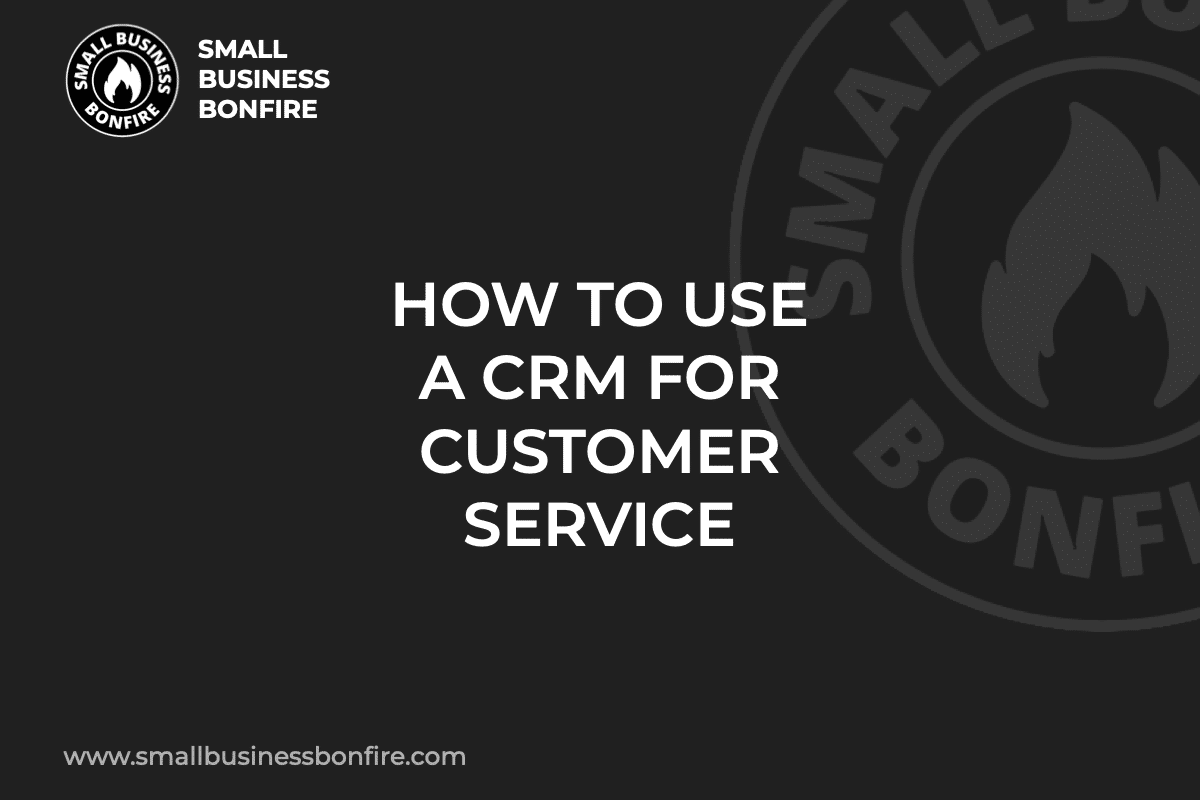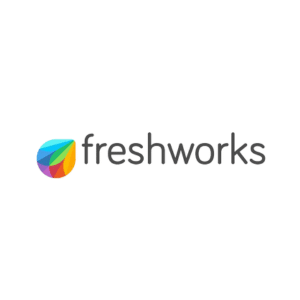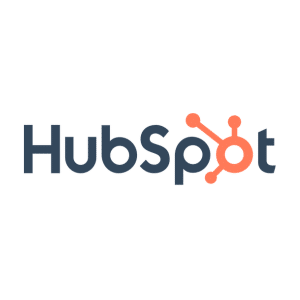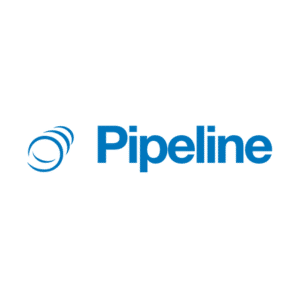Are you finding it challenging to offer superior customer service? How do you know the best way to handle customer inquiries?
Providing consistent customer service is hard, especially when you don’t utilize data and analytics.
Fortunately, CRMs can help with that!
I’m AJ! Over the past decade, I scaled and (recently) sold my business for multiple seven-figures. One thing I learned along the way was the importance and value every business owner must place on customer service.
I created Small Business Bonfire to share everything I have learned with other business owners!
How can CRMs help YOUR business streamline operations and stand out from competitors? Stick with me! I’m revealing insights and tips you don’t wanna miss!
Key Takeaways
- Customer service CRM platforms create consistent communication, analyze customer interactions, and boost sales.
- CRM software logs customer service calls, ensuring your team offers top-notch service.
- Excellent customer service leads to repeat customers, brand loyalty, and more sales opportunities.
- Monitoring CRM performance ensures your company is on track to meet its goals.
Related Reading: Best Small Business CRM
SBB Featured Partners
What is a CRM In Customer Service?
What is a CRM? CRM for customer service focuses on improving customer relationships and overall satisfaction levels.
Customer relationship management (CRM) software locates, stores, and organizes customer information, including things like:
- Demographics
- Transaction records
- Social media activity
- Shopping history with your business
- Effective marketing strategies
Customer service CRM systems find ways to improve each customer’s shopping experience by learning more about the individual.
Think of it this way. A customer service CRM system keeps track of and organizes a bunch of information about every person who shops with your company.
As a result, your customer service team has an in-depth view of every existing customer, meaning they can answer questions faster, solve problems, and offer efficient customer support.
What are the Benefits of Using a CRM for Customer Service?
Sure, customer service CRM software sounds helpful, but how beneficial can it really be?
Customer service teams enjoy several advantages when a company implements a customer service-driven CRM. Trust me, CRM tools can be a real game changer for customer service representatives!
Below I’ve compiled seven benefits of using customer relationship management technology for customer service!
CRM Can Track Customer Interactions
As mentioned, CRM software stores and organizes TONS of information about your target audience.
However, did you know the software can also track customer interactions?? CRM systems can track every point along the customer journey, including touchpoints like:
- Phone calls
- Emails
- Order history
- Issues or problems they’ve encountered
With customer service CRM, every time a representative opens a customer profile, they see a complete history of that individual.
Tracking customer interactions ensures your customer support team is prepared for anything!
CRM Can Monitor Customer Satisfaction
Customer relationship management systems provide critical customer insights that help teams effectively manage relationships and engage with unhappy customers.
Although it can be difficult, it’s essential to interact and stay in touch with unhappy customers.
Fortunately, CRM solutions simplify getting and staying in touch with customers so your team continually gauges customer satisfaction.
CRM Can Improve Customer Service
Customer service CRM software can improve customer service significantly.
CRM tools provide customer service reps with information that allows them to understand and cater to your audience. As a result, they provide better support.
Offering excellent customer service is critical for customer retention!
Most customers are willing to pay more for products and services if the customer service is top-notch.
CRM Can Help You Monitor & Resolve Complaints
All customer service requests are equally important, even the bad ones.
No one enjoys handling complaints, but doing so with professionalism and patience is essential for a good customer experience.
CRM software automatically records and organizes all the emails and phone calls your customer service department handles.
Therefore, you can ensure high-quality customer service and resolve complaints quickly if a customer notes poor service.
CRM Can Increase Team Productivity
Because CRMs organize customer information, your team isn’t left scrambling to find contact information, purchase history, etc.
Instead, everything your reps require to provide meaningful customer service is right in front of them in one central location!
As a result, support teams are more productive when handling inquiries and other requests. And when teams are more effective and efficient, your business is more profitable!
CRM Can Improve Customer Data Better
Your CRM system can improve customer data and utilize it in ways you could never imagine!
CRMs provide real-time updates whenever customers purchase something, interact with a marketing campaign, etc.
Therefore, your team can access the most up-to-date customer data available!
Additionally, CRM technology collects customer data from multiple channels, giving your team a comprehensive look at their preferences, shopping behaviors, and interests.
CRM Can Increase Profitability
CRM systems have a knack for boosting profitability, almost like a financial wizard waving a magic wand.
Here’s the lowdown.
With a CRM system, a closer, more personalized relationship with customers is established.
This relationship leads to enhanced customer satisfaction and loyalty, which can translate into increased sales.
Improving each customer experience leads to more opportunities for cross-selling and upselling!
CRM Customer Service Examples
How can you use customer relationship management software in your customer support department?
There are several easy ways to implement advanced CRM technology into your business! Below I’ve outlined my favorite ways to use CRM to help customer service processes.
Send Automated Emails in CRM
CRM software utilizes automation technology to send emails throughout the entire customer lifecycle.
Automated email responses offer customers instant confirmation that you’ve received their questions. Additionally, these messages can include links to essential pages like the FAQ page on your website.
By doing this, you ensure popular customer queries are handled immediately (because the answer is on the FAQ page).
Automated emails not only manage customer relationships, but they also save customer support reps an incredible amount of time!
Using a CRM Case Management
Case management records, tracks, and analyzes data associated with each customer support inquiry.
Case management helps customer support representatives identify patterns and common requests from your existing customers.
Also, using CRM software ensures your team organizes essential information, such as the following:
- Customer interaction tracking
- Customer queries
- Customer satisfaction ratings
- Customer communication techniques
- Customer retention rates
Put simply, CRM data ensures your customer support information is organized and easily accessible!
Review Customer KPIs In Your CRM
Another thing a customer service CRM can help with is making it easier to view and meet your goals and key performance indicators (KPIs).
Accessing your customer KPIs in CRM software ensures information is centralized.
As a result, your team constantly sees and is reminded of what they’re working toward.
Goals are easy to forget if you don’t look at them daily, so reviewing customer KPIs on your CRM dashboard is extremely helpful!
Personalize Customer Interactions In CRM
A CRM solution allows you to personalize your customer interactions (which is essential for an excellent customer experience).
For example, CRM software allows you to customize aspects like:
- Email and SMS prompts and messages
- Automated workflows
- Marketing automation tasks and messages
You can use your CRM tool to build a customer journey that matches your brand voice.
Is personalizing customer interactions really that important?
Yes! Your team MUST find ways to personalize customer experiences because these interactions build customer loyalty and increase sales.
Consumers value positive customer service experiences and are likelier to shop at stores where they know and trust they’ll receive excellent customer service!
Review Customer Supports Team Performance
Lastly, a customer service CRM allows you to analyze individual performance.
You can see how each customer service representative handles customer inquiries and identifies areas of improvement.
Improving customer service is always worth pursuing, so you should review team performance regularly.
Additionally, reviewing team performance lets you see everyday struggles and weak points your staff deals with.
How to Use a CRM for Customer Service
Now that you understand the benefits of implementing a CRM platform for customer service, you must know how to use it!
After all, a CRM system is only helpful if a company utilizes its features and functions correctly.
Below I’ve created a seven-step process for you and your team. If you follow this guide, your company will have an in-depth customer database and better understand your customers’ needs.
Step 1: Choose a CRM
The first step is choosing a customer relationship management system! Sounds easy enough, right??
Finding a CRM system that fits your business needs is more time-consuming than many assume.
Some factors you must look for in a CRM include the following:
- Price and pricing structure (annual or monthly payments)
- Features
- What the software is designed for (customer service, marketing, or sales teams)
- Whether your company needs general use or industry-specific software
- Ease of use
There are several factors to consider when shopping for CRM software. Fortunately, most CRM providers offer free trials or demos.
That way, you and your team can test the software before implementing it. Free trials are a great way to prevent a premature purchase.
Also, ease of use is a critical factor worth considering. Training employees to use new technology will take time.
However, the last thing you want is an overly complicated CRM tool your team can’t learn.
Step 2: Add Users and Assign Roles
After you find the right CRM for your company, it’s time to add employees and assign roles.
Everyone in your company, from customer service reps to sales teams, can benefit from CRM technology.
Still, for security reasons, following the principle of least privilege is essential. This principle states that you should only give users enough access to information and data needed to perform their jobs.
For instance, sales and marketing teams don’t need access to customer support logs and ticketing reports. Similarly, your customer support managers should have access to reporting tools.
Step 3: Create and Automate CRM Processes
The third step is finding parts of your customer service processes to automate.
Of course, there are many customer service aspects you can’t automate, including the following:
- Case management
- Ticket management
- Payments and invoicing
- Client communications
- Loyalty management
Still, there are pieces of customer service that can be automated.
When choosing which processes to automate, think about the entire customer journey when they contact your support staff. The process starts with an inquiry and ends with a resolution (and a happy customer).
Find tasks between the start and end of the customer journey that don’t need to be handled by an employee.
Automated workflows improve productivity because your employees aren’t responsible for as many tasks!
Step 4: Utilize CRM Integrations
Most CRMs include numerous customer support-related features that improve productivity.
Still, there are endless third-party applications you and your team can integrate into your software.
Integrations improve functionality and ensure you have a more centralized system.
There are third-party integrations for anything you can imagine! From email marketing software to loyalty and incentive program tools, third-party apps bring your vision to life.
As a result, you don’t have to find a CRM with every feature your team requires. Focus on finding an easy-to-use and affordable CRM with your required essential functions.
Then, use third-party integrations to fill in the blanks. CRM integrations are a game changer!
Step 5: Clean and Add Customer Data
Before transferring your customer data, it’s crucial to go through and clean it.
Clean data prevents repeat information or outdated customer contact information.
Why is clean, updated data necessary?
A CRM is only as good as the information you feed it. So, if you fill the software with outdated, incorrect information, you’ll get inaccurate predictions and recommendations.
It may be time-consuming, but checking your data before adding it to your CRM is essential.
Lastly, if you don’t want to manually transfer all your company’s data into your new CRM, look for third-party data-transferring services!
Data transferring services save time and (in my opinion) are worth the price.
Step 6: Run Normal Customer Service Interactions
Step six is the fun part! You run normal customer service interactions and let your CRM software do its thing!
As a prospective customer is converted into a paying one, customer service activities like account management may occur.
And if you follow my previous step, you’ll automate tasks like case assignments, ensuring the right agent gets connected with the request.
Now, your customer support team has access to centralized data so that they can offer faster and more personalized service.
Step 7: Track and Monitor CRM Performance
The final step is simple yet essential for long-term success! Still, I’ve seen several business owners ignore this step because they think it wastes time.
Tracking and monitoring CRM performance is critical for continuous improvement. Additionally, tracking your progress ensures you don’t waste money on ineffective tactics.
You can monitor and track CRM performance daily or weekly. Regardless, you must ensure you know what’s going on within your company.
CRMs provide in-depth data, analytics, and reports. Refusing to look at these metrics is silly!
What is the Best CRM for Customer Service?
At this point, you’re likely eager to start using CRM for your company’s customer service needs. But where do you start?
Choosing a CRM is a careful decision. Let’s look at three popular CRMs for customer support!
Wrike
Wrike is a customer service-tailored CRM that offers plans for any-sized team.
The monthly rates available at Wrike are as follows:
- Free: $0 (no credit card required)
- Team: $9.80
- Business: $24.80
- Enterprise: Custom rates
- Pinnacle: Custom rates
Wrike allows users to test their services without entering credit card information.
Additionally, Wrike has advanced features that enhance business operations.
For instance, Wrike’s most popular plan, Business, includes 200 automations per user per month, AI risk predictions, and time tracking.
And if you need an enhanced CRM, Wrike’s Pinnacle plan has everything you need and more! From advanced reporting to a performance dashboard, the Pinnacle plan is top-notch CRM!
If you are interested in learning more, check out our full Wrike Review!
Freshservice
Freshservice is best known for being advanced yet easy to use.
Features like AI technology and automation ensure employees are productive and have the necessary tools in one location.
Some features you can expect from Freshservice include the following:
- Automated alert grouping
- On-call management
- Real-time updates
- Automatic updates
Freshservice’s plans vary based on features, users, and payment structure. Still, the company offers a free trial and demo users can enjoy!
Does Freshservice seem like it might be a good fit for your team? Check out our full Freshservice review to learn more!
HubSpot Service Hub
HubSpot’s Service Hub ensures you build strong customer relationships while optimizing team performance.
Plus, you can connect this service to HubSpot’s full CRM platform!
HubSpot’s plans are designed to grow as your company grows. Pricing rates are as follows:
- Free: $0 monthly
- Starter: $45 monthly
- Professional: $450 monthly
- Enterprise: $1,200 monthly
HubSpot offers advanced tools, such as shared inboxes and conversational tools, that help your team work efficiently.
Other tools include customer portals, knowledge base functionality, playbooks, custom surveys, and help desk automation.
Are you interested in learning more about HubSpot? Take a look at our full HubSpot Service Hub Review!
Bottom Line
Customer service is an integral aspect of any business. Nowadays, consumers expect fast customer support and immediate solutions.
CRMs offer in-depth customer data and organize information so customer support reps have everything they need in one location. As a result, agents can provide better customer service.
What strategies does your company use to enhance customer support experiences? Let us know in the comment section below!
Good luck finding and implementing the right customer service CRM for your business!
Newsletter Signup
Join The Leads Field Guide Newsletter for tips, strategies and (free) resources for growing your leads, and closing more deals.




